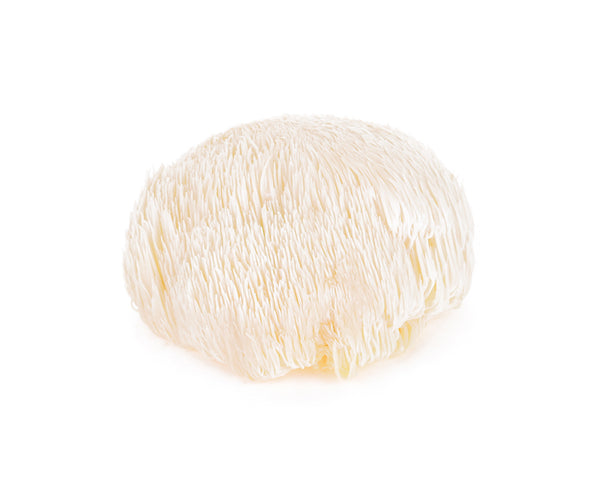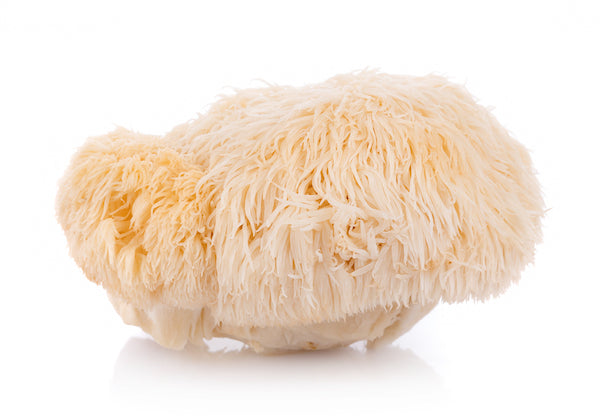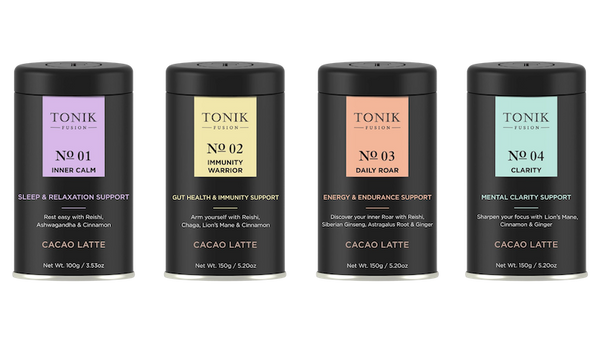Does Lion's Mane Help Cholesterol?
Many of us seek natural remedies for health issues like high cholesterol, and my interest in adaptogenic mushrooms led me to Lion's Mane.
I first tried it in a morning smoothie, blending its earthy tones with fresh berries and banana—not just for taste but to explore its potential cardiovascular benefits.
Emerging studies suggest that Lion's Mane mushroom could positively impact cholesterol levels, with bioactive compounds that may reduce LDL (bad cholesterol) and increase HDL (good cholesterol). This points to Lion's Mane as a natural option for cholesterol management. However, more comprehensive human studies are needed to fully confirm its cholesterol-lowering benefits.
What is Lion's Mane?

Lion’s Mane, a large, white, shaggy mushroom that resembles a lion's mane as it grows, is gaining popularity not just among gourmet chefs but also within the health and wellness community. The mushroom is known for its potential cognitive and neurological benefits, but its impact on cholesterol and heart health is also garnering attention. Historically used in Asian medicine for its extensive benefits, Lion's Mane contains bioactive substances that could influence brain health, nerve regeneration, and immune health.
How Does Lion's Mane Affect Cholesterol?
Lion's Mane mushroom is gaining attention for its potential effects on cardiovascular health, particularly in how it influences blood lipid levels. Research documented in reputable sources such as PubMed highlights several promising effects:
- Reduction in Total and LDL Cholesterol: Studies indicate that Lion's Mane extracts can significantly lower levels of total and LDL (bad) cholesterol, which are key factors in the prevention of cardiovascular diseases.
- Potential Increase in HDL Cholesterol: There is also emerging evidence that Lion's Mane may help increase HDL (good) cholesterol, further supporting heart health.
- Holistic Heart Health: This dual action of lowering harmful cholesterol while boosting beneficial cholesterol suggests that Lion's Mane could be a valuable component in a holistic approach to heart health management.
How to Know If You Have High Cholesterol?

High cholesterol is often a silent condition, lacking visible symptoms, which makes it particularly stealthy and potentially dangerous. Typically, it's detected through a blood test during routine health examinations. Here are key points to consider:
- Regular Screening: Regular blood tests are crucial as they are the only way to accurately detect high cholesterol levels before they lead to more severe health issues.
- Risk Factors Awareness: Being aware of risk factors such as obesity, poor diet, lack of exercise, smoking, and a family history of heart disease can prompt earlier and more frequent testing.
- Monitoring for Complications: Although direct symptoms of high cholesterol are rare, watching for signs of related complications like chest pain, signs of stroke, or other heart-related symptoms is vital for those known to have or are at risk for high cholesterol.
Can Lion's Mane Prevent High Cholesterol?
Lion's Mane mushroom is not a cure-all but can complement a holistic strategy for managing cholesterol levels. This fungus is valued for its potential benefits in supporting liver function, which is crucial for regulating blood fats. Here’s how Lion's Mane can contribute to cholesterol management:
- Supports Liver Function: Lion's Mane may enhance liver health, helping it more efficiently process and break down fats in the blood.
- Improves Lipid Profile: By aiding liver function, Lion's Mane might help balance the levels of HDL (good) and LDL (bad) cholesterol, potentially leading to a healthier lipid profile.
Incorporating Lion's Mane into a lifestyle that includes a balanced diet and regular physical activity could be beneficial in preventing high cholesterol.
Comparing Lion's Mane to Traditional Cholesterol Medications
Traditional cholesterol medications like statins are effective but can cause side effects such as muscle pain and digestive issues. Lion's Mane offers a gentler alternative with potential cardiovascular benefits and fewer side effects.

Always consult a healthcare professional before substituting any prescribed medications with supplements like Lion's Mane, which is also featured in Tonik Fusion's Immunity Warrior and Clarity Cacao Latte blends for additional health benefits.
FAQs about Lions Mane and Cholesterol
How Long Does It Take for Lion's Mane to Affect Cholesterol Levels?
Effects on cholesterol can vary, but some individuals may begin to see changes within a few weeks to a few months of consistent daily intake of Lion's Mane.
Does Lion's Mane Have Any Effects on Blood Pressure?
Current research does not directly link Lion's Mane with significant blood pressure changes, but its potential effects on overall cardiovascular health could indirectly influence blood pressure regulation.
Can Lion's Mane Help with Weight Management, Which in Turn Affects Cholesterol Levels?
While Lion's Mane isn't primarily known for weight loss, its potential effects on improving metabolism and reducing inflammation could indirectly support weight management.
What Diet Is Best to Follow While Taking Lion's Mane for Cholesterol?
A diet high in fruits, vegetables, whole grains, and lean proteins, and low in saturated fats and sugars, complements the cholesterol-lowering effects of Lion's Mane.
Can Lion's Mane Reverse Existing Cholesterol-Related Conditions?
There is no direct evidence that Lion's Mane can reverse conditions like atherosclerosis, but it may help reduce risk factors associated with these conditions.
Closing Thoughts
For those interested in exploring the benefits of Lion's Mane further, I recommend visiting our shop to try our cacao blends. They are designed to support various health goals and lifestyles. Take our quiz to find out which blend suits your needs best and start your journey toward better health with the support of adaptogenic mushrooms.